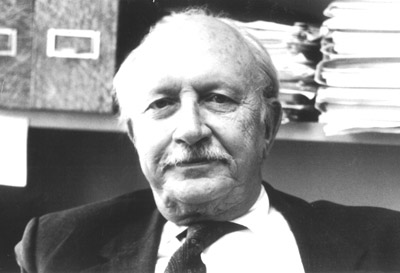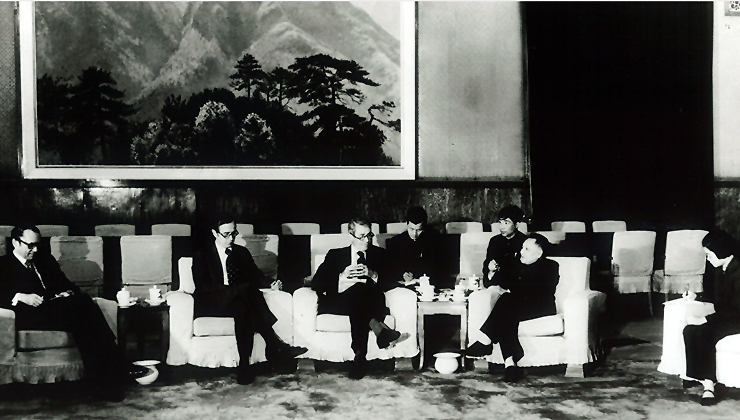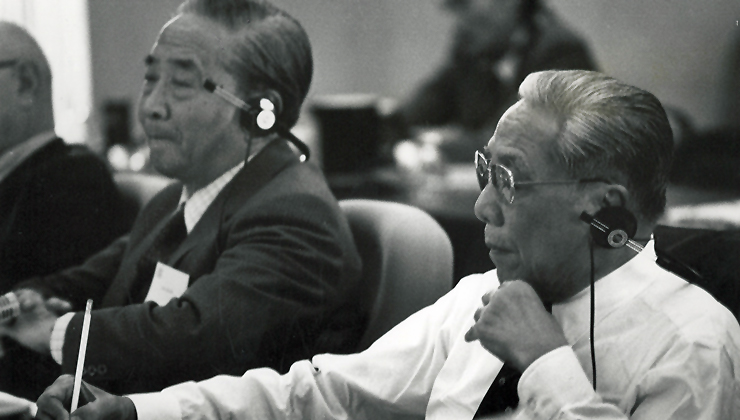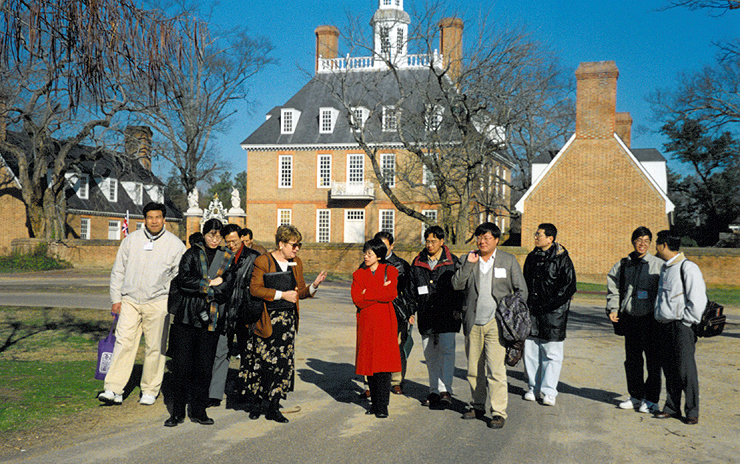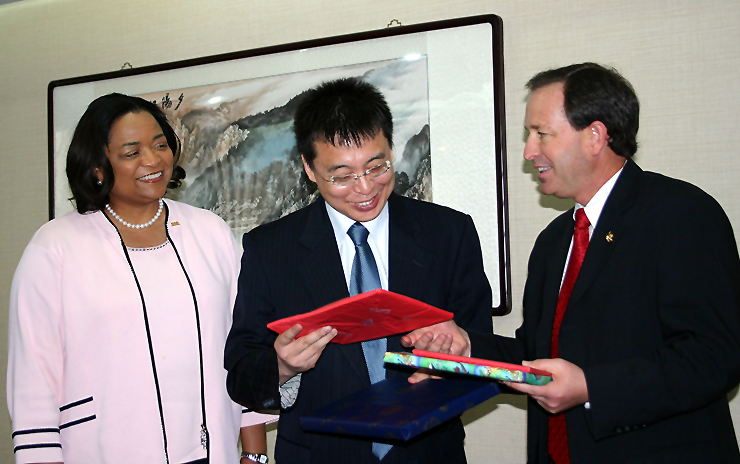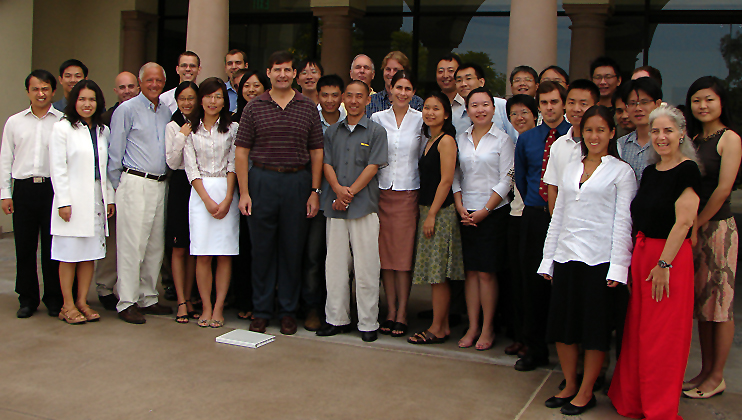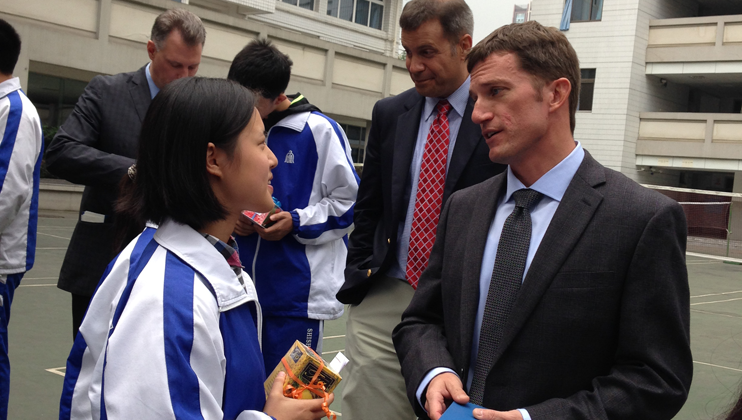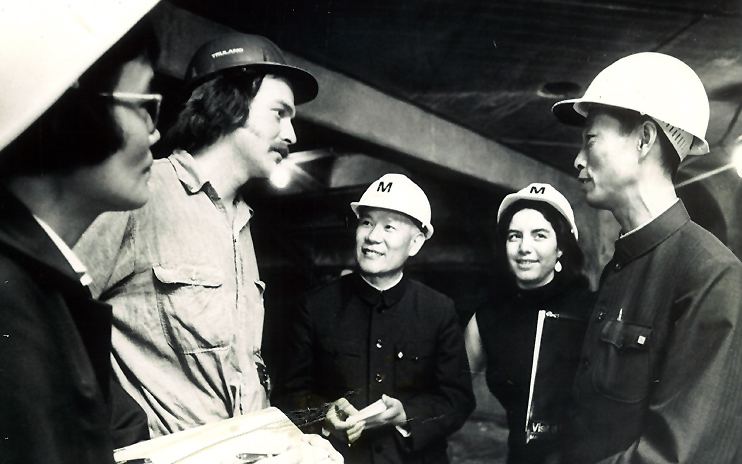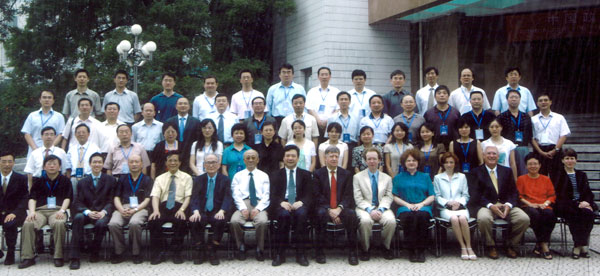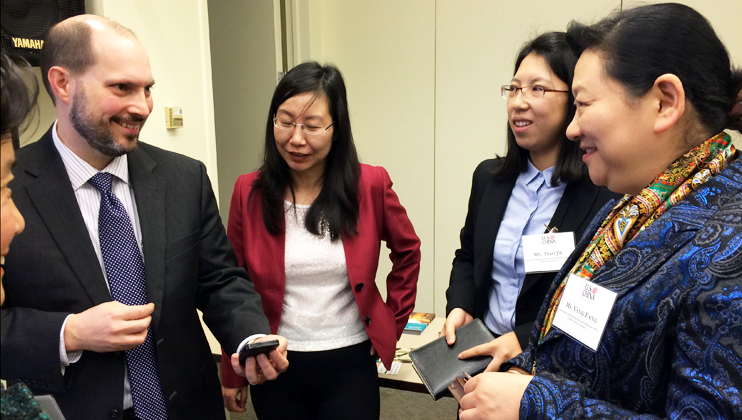Between 2000 and 2005, the National Committee held an essay contest in honor of the late scholar A. Doak Barnett. American and Chinese graduate students submitted 1,500-word essays on topics in U.S.-China relations, with authors of the best essays receiving rewards of $1,000.
George H.W. Bush and Deng Xiaoping met for the first time in October 1975, when an 18-member delegation of American leaders active in public education on world affairs visited China to discuss international issues.
Started in September 1984 as an off-the-record gathering of leading citizens of China and America, the U.S.-China Dialogue was the first formal instance of Track II diplomacy in the Sino-American relationship. It was held every 12-18 months, alternately in China and the United States, until 2002.
Launched when only a trickle of Chinese graduate students and scholars came to the United States for study, the Scholar Orientation Program was created to supplement academic training that Chinese scholars received at U.S. institutions by providing them with greater exposure to America's history, culture, and key institutions.
In June 2007, the National Committee worked with long-time partner, the National League of Cities (NLC), and new partner, the League of California Cities (LCC) on a ten-day study tour to Beijing, Qingdao and Shanghai for mayors, city council members, and the NLC and LCC leadership.
In 2006, ten promising graduate students were selected from the United States to join with ten each from mainland China and Taiwan to participate in a National Committee's conflict resolution program.
The purpose of these seminars for mid-career U.S. military officers who have been fast-tracked for top leadership positions but do not focus on China in their daily work is to provide them with a background on China and to brief them on issues not conventionally covered in their military training — issues such as China's domestic politics, economic development, business and trade, foreign policy, rule of law, growth of civil society, environmental concerns and climate change, energy, and the use of soft power.
Expanding U.S.-China exchange programs beyond sports and culture, the National Committee and American Society of Newspaper Editors brought the first delegation of journalists from the People's Republic of China to the United States in 1973. Since then, several hundred journalists and media executives have participated in NCUSCR exchange programs and media-related conferences, workshops, and internships.
The National Committee co-organized a conference with the School of Finance of Renmin University of China in Beijing in July 2006. The conference focused on the changing dynamics between China's central and provincial governments through the lens of fiscal reform.
From 1981 to 2015, the National Committee administered a program on behalf of the U.S. Department of Education to bring delegations of educators and educational administrators from across China to the United States. Twice each year, participants selected by the Chinese Ministry of Education had an opportunity to learn about the strengths and challenges of various […]
